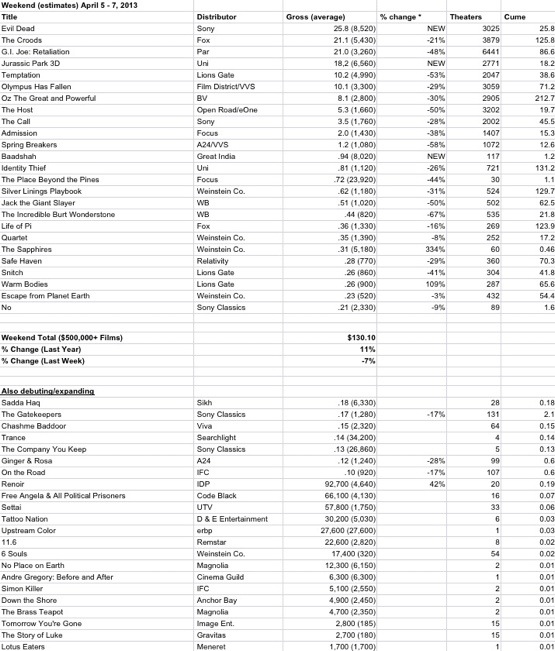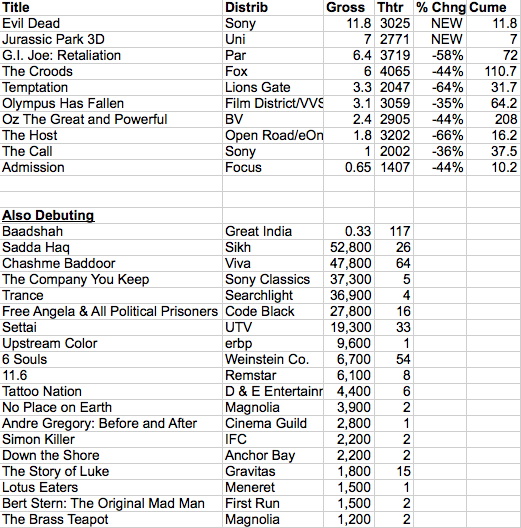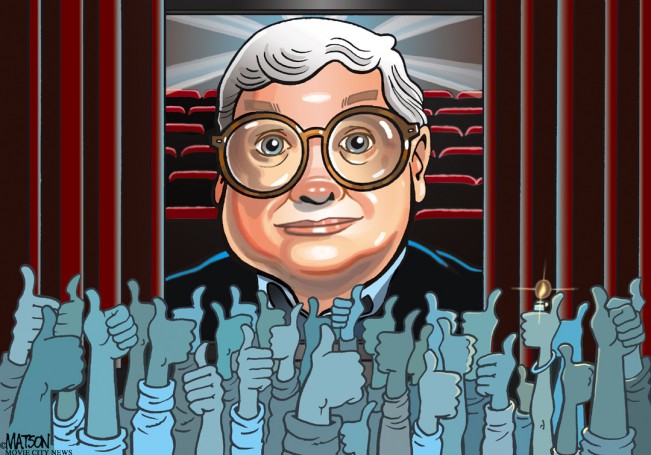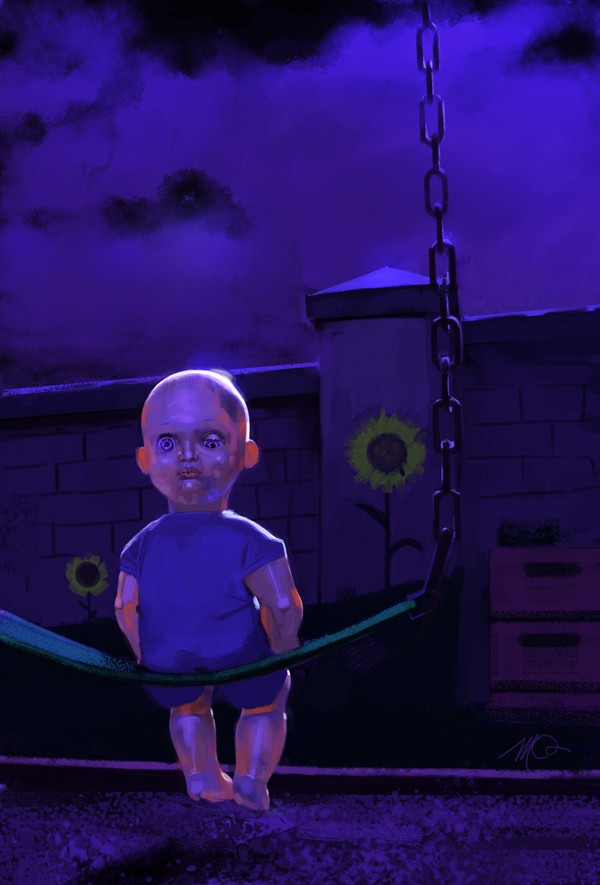The Hot Blog Archive for April, 2013
Saying Goodbye To Roger Ebert: Episode Two
It’s been a week since Roger died. And I still have a knot in my stomach.
I have wanted to make impersonal tribute, but I have failed. There is nothing about my experience of the man about which I can be fully objective. I know too much. And I know too little. So I will try to be clear, be true, and not cross any of the lines that should not be crossed.
My 15 year relationship with Roger – I can’t speak for his relationship with me – was complicated. He was both spectacularly generous to me and, at times, agonizingly withholding. I was, I think, as lucky to have the withholding part as the generosity because, added up, there would be nothing to withhold had he not been so generous in the first place.
I think I had Roger’s respect, most of the time, and a modest amount of affection. I think that much of what drew him to my work would ultimately keep me at arm’s length.
He never allowed me the honor of really dueling with me. I was 33 when we (really) met. He was 55 and at the top of the movie media food chain. I was not of his generation and though he was incredibly respectful and kind to my work, I don’t think he was ever to see the playing field as even. And it wasn’t. But to really do the dance, both partners have to go there. There has to be respect and the respect that is disrespect.
I think this reality, far beyond my personal experience, and Roger’s intense commitment to a stable work environment are what defined most of Roger’s professional efforts from the time of Gene’s illness until his forced aural silence. We had an exchange a couple of years into Ebert & Roeper about what I thought might be a better road for him and legacy (sounds silly writing that now) and he made crystal clear that he wanted to shoot his show in the same city in the same studio on the same day on the same schedule and write every movie review that ran in the Sun-Times forever and that this was his idea of a perfect professional life. He was a man of habit. He took joy and solace and safety from those habits. So I stopped poking.
In this relatively short period of 15 years, I feel as though there were 5 eras of Ebert. There was:
1. The Established Siskel & Ebert Roger, in which Roger had height of fame and fortune while he looked for things – often online – to challenge him beyond the limitations of the weekly show and Herculean task of writing every single movie review for the Chicago Sun-Times.
2. The Gene Is Sick And/Or Dying Roger, in which he had to start considering and living with real change that was not of his choice.
3. The King Roger Era, in which after the death of the only real professional partner in his career, he was no longer “The Fat One” or competing with Gene on decision making, but was alone on top of the mountain, with all the benefits and troubles of holding that ground.
4. The Silent Roger Era, in which he found off cancer heroically and finally was silenced by a complication that would take his voice, and for a while, his greatest power.
5. Resurrected Roger, in which Roger not only found a strong and clear voice via the Internet, but in which he ultimately chose transparency in a way that was virtually the polar opposite of his public choices back in the earlier eras of his life.
It’s hard to express how uncomfortable I am with the many tributes to the man that start with first-person knowledge/memories of this last part of his life followed by wikipedia boilerplate about the history. Almost everyone who has written who really had a relationship with Roger has been on point, both in what they have said and what they have not. Almost every writer who met him once or twice or admired his resurrection from a distance got it, pretty much, wrong… at least in terms of drawing a truthful picture of the man’s full history.
There is a lot to love and admire about Roger Ebert’s professional life. But it’s almost as though in lavishing praise on the man, they forgot what Howard Beale forgot and was reminded of by Arthur Jensen in Network. Why was Roger SO beloved? Because he was on television, dummy.
Acknowledging this does not diminish his achievements. Other people have been and are on television and didn’t become Ebert (or even Siskel). There was something in the pairing of these two men… something that was not intended or designed by the men, but which came to life in a way that it rarely does, not just for film critics, but for any pairing of characters on any kind of television.
If you made a list of the great pairings in the history of the medium, Siskel & Ebert would be in the Top 50 for sure. (I as going to write “Top 20,” but I haven’t thought about it enough to be sure that it would not be an overreach.) And it was certainly one of the 10 longest enduring pairings, not far down the list from Lucy & Ricky.
There are three big reasons why it will be surprising if we see the likes of Roger Ebert again. First, the very nature of television does not encourage it, though Jon Stewart happens. Second, no one has ever been a harder worker than Roger. Others may match him. I did for a while. But after 5 or 6 years, I tired and found ways to do less for greater personal benefit. Not Roger. Until he literally was incapable of working the remarkable schedule he worked, he carried more bricks up the hill than anyone.
When i noted early last year that Roger dad “given up being the only critic writing on film at the Chicago Sun-Times,” he shot back in an e-mail, “Last year the Sun-Times fired all free lancers. I review everything that gets reviewed. In 2011 I filed 292 reviews, a lifetime record.”
That’s Roger. Super worker… profoundly house proud.
Is Roger the greatest critic? No, because no such thing exists. Like movies, criticism is a matter of personal taste.
Was Roger the most read critic? Probably at times. But others have been syndicated as he has, like Roger Moore for the Tribune Syndicate or Jeffrey Lyons by (I think) Gannett. Does that make them Ebert? No.
And yes… the third reason we may never see another Ebert. Magic.
Some things are just beyond analysis (heavy on the anal). When you meet someone and just feel that warmth and affection, it isn’t a series of intellectual steps. It’s magic. It’s Kismet. It was Roger.
I truly loved the man. He came into my life soon after my father died. And he wasn’t really a father figure. He was more like an older brother who was really nice to his noisy, obnoxious, unplanned-for kid brother. He included me in so many ways that I can’t be anything less than thankful, even if, at times, I felt like Moses left behind for some sin (criticizing Roeper was surely my greatest blasphemy) as God shepherded the Jews into Israel. (I guess Roger is God in that metaphor… and I’m eating matzoh and wearing sandals in the desert… oy.)
Roger was a brother to so many. A parent to others. An icon to countless millions.
He did, after Gene died, exactly what I wished that the person who’d end up sitting next to him on the aisle would do… he preached the love of movies. And yes, he was already on TV expanding the view of arthouse movies and writing beautifully in print even as “thumbs” became too much the shorthand for good and bad films. But in these last 15 years, he got on the pulpit, he pushed harder and more publicly for the festivals he had always attended and added more to his schedule. He got up in the pulpit and sang, loud and strong.
And when he lost his aural voice, it was, after a time, like he was born again. The Far-Flung Correspondents was Roger leading the way to seeing a world of movie voices a different way. he didn’t just tell us what to do about it… he did it. Ebertfest started out as The Overlooked Film Festival, focusing not just on films that Roger felt were overlooked, but film formats as well. It’s become near impossible to get 70mm (and Todd-AO-Vision) prints that he hasn’t already shown, but the festival – which ran out of films on Roger’s overlooked list after a few years – still pays homage to oddities and the unexpected and a silent film shown every year.
I remember the first festival well. April 1999. Autumn Tale had not gotten US distribution out of the Fall 1998 festivals. And then, during the festival, it was announced that it would be distributed in the US by October Films. It did $2.2 million that summer.
That festival also brought Scott Wilson to Urbana-Champaign (as Roger called it) with Shiloh, his first trip of four to the festival. Roger also did a Floating Fiim Festival event with Scott, frame-by-framing In Cold Blood together. (Scott’s in Chicago today for the memorial, his shooting schedule keeping him from Ebertfest this year.)
Roger even showed a black & white 16mm film, Surrender Dorothy, balanced by the 70mm glory of Tron (long before Disney rebooted).
The second year, Australian Paul Cox brought his mighty film about an aging woman with undying spirit, A Woman’s Tale, to the fest. Paul will be back again this year.
Also appearing was The Castle, directed by Rob Sitch and produced by Michael Hirsch, which gave Ebertfest a recurring meme, “This is going straight to the pool room,” to be used onstage every year, almost every time an Ebert thumb was given to a filmmaker.
And there was the screening of Chris Smith’s American Movie and Coven, which was so popular/beloved that Mark Borchardt and Mike Schank would make multiple trips back to Ebertfest and have extra screenings at the Art Theater.
Plus the legendary Charles Lane and a live phone hook-up to Dark City director Alex Proyas from the set of Garage Days long before Skype.
Anyway…
I could go on. I’m sure I will. As for Roger…
Big footprint. Much love. Lots of great movies.
10 Comments »How To Think: Chase Carey Edition
Doing what I do, I guess I spend a lot of time writing about what I think others should think.
But I realize more and more that I am more frustrated these days by the process of thinking than I do about the conclusions that emerge from the process. I don’t really give a crap what people think, so long as their notions emerge from a way of thinking that allows them to consider a reasonably wide perspective.
The discussion this week in many media circles is about Fox’s Chase Carey “threatening” to take the Fox Television Network off of over-the-air broadcast TV in order to avoid being rights-raped by Barry Diller and Aereo.
Now… you can make an argument that this is ridiculous and bad business and makes no sense. But if you are making this argument primarily based on the idea that change is unlikely and that networks have been operating a certain way for decades and this just isn’t going to happen than you are absolutely failing as a critical thinker.
In the last 20 or so years, it seems that virtually everything about television has changed… and that is aside from streaming, a phenom of the last few years.
20 years ago, fin-syn – the rule that kept networks from owning the shows they aired – was abolished. The entire industry changed.
When cable television was making the push into cities, they were required to put all local broadcast stations on their systems. Now, they are paying for the right to retransmit the network broadcasters. The entire notion of how networks are paid for the content package that they have created is changing.
Less than 2 years ago, Netflix started making 9-figure annual deals with studios and producers for post-theatrical streaming rights. Before that, it was low 7-figures and 6-figures. The funding of the industry changed massively, virtually overnight.
Back in the day, the networks paid affliated stations to run their programs. Now, affiliates pay the networks for the right to transit their line-ups.
In the week ending March 31, 2 of the Top 9 shows in America were cable shows. “The Walking Dead” was #6 and “The Bible” was #9, each with over 11 million viewers. But traditionalists will tell you that that’s just because of the great traditions of those two powerhouse drama networks, AMC and The History Channel. (That was sarcasm, folks.)
Have 6 seasons of Monday Night Football on ESPN caused everyone to forget that this was the #1 property on broadcast TV for decades? And do we remember what Sunday night was before NBC started doing Sunday Night Football… a previous ESPN property? Did you watch any NCAA Tournament games on tru-tv? Would you have expected to do so before the summer olympics were spread out over 8 channels – mostly cable – last summer?
Forget about sitcoms or hour-longs leading network ratings… do we remember movies of the week and how huge they were? Do we remember when reality television was not allowed in prime time? Things change… a lot… quickly… and often. Does media resist this notion because it’s impossible to get ahead of every curve… that media will be surprised most of the time too? Is that thinking smartly or being self-protective?
The NFL averaged 17.4 million viewers per game last season. How much of that audience was watching over-the-air? The estimated 15% (2.6 million) that don’t have cable or satellite? 1.4 million? Most likely, about a million. How many of those are cord cutters? Not sure. But the cutters could easily be serviced, as MLB already does and DirecTV offers as an extra, by a streaming package.
The NFL sells its rights to broadcast, cable, satellite, etc, for what will be just under $7 billion in 2014.
If 10% of the viewers are “at risk” and if the Aereo concept puts, say, $500m in retransmission fees at risk… well, it’s math, isn’t it? Also part of the equation, the value of network owned & operated stations and revenues from network affiliates. If it weren’t for those last two things, the math would already swing towards making these non-broadcast nets. (I object to the flinging of “just another cable station” at such a shift. It overstates the argument wildly.)
Anyway…
The argument over the future of networks or Aereo or over-the-air broadcasting can be had by reasonable people. But so much of the thought process I see in print, online, Twitter, and elsewhere embraces wither the status quo or the underdog “disrupters,” which could be anything from legitimate game changers to con artists.
I am passionately against Aereo because I believe it undermines the foundations of the content creators and aggregators (networks) that seem completely reasonable in this day and age. Moreover, as a consumer, I want more access, just like everyone. But I know – having watched it scores of times – that if the players can’t get paid, it ultimately results in less content and access, not more.
What separates the “broadcast” networks from the cable networks isn’t (primarily) the over-the-air broadcasting… not in 2013. It is the 30+ hours of “original” programming delivered each week. Good, bad or indifferent, that programming just doesn’t exist on any all-cable network. It’s not because there aren’t enough people available only on cable and satellite, but because the model is, simply, different.
No one has The Answer… or everyone would air only winners. No matter how good any choice, there are things given up, whether demographically or the cost of the show or a given show’s ability to support other shows. Sunday Night Football has great ratings, but it’s expensive and not as female friendly as some programming and is off the air for 2/3 of the year. Good and bad.
But I hate the rush to deny change.. and of course, the shockshock when the change comes and the effort to own the very change that was being poo-pooed just months before. Everyone on… everyone off… everyone on. I’m not saying that everyone has to be an iconoclast or even a serious researcher. But just answering the basic questions of journalism more seriously would help so much. What? Who? Where? WHY?
Each story is NOT in its own little bubble, disconnected from the rest of the world. That is publicity, not journalism… not serious thought.
5 Comments »Friday Estimates (10 Wide & 19 Arthouse) by Evil Klady
DP/30: The Brass Teapot, actors Juno Temple, Michael Angarano
Saying Goodbye To Roger Ebert: Episode One
I don’t quite know where to put Roger Ebert’s death right now.
I can’t say that I am shocked. But Roger has taken a step back before, only to come on stronger. I am now guessing that his “leave of presence” note was written over weeks, and as directors have said about films, “escaped” as late as possible rather than being “released.” Roger was not one to give an inch – in terms of his work – if he could help it.
I saw his wife, Chaz, at the Independent Spirit Awards at the end of February and we talked about this year’s Ebertfest. I got the impression that she thought it might be the last one for Roger… whether he attended or not. In recent years, his attendance was not inevitable, but everyone – led by Chaz – carried on as though that recliner at the back of the Virginia Theater that was installed for Roger after he first fought off cancer was filled. And it was, really. Roger’s passion filled it and the room and for five days every year, his entire hometown.
The 15th Annual EbertFest (nee’ The Overlooked Film Festival) will start in just 13 days. It’s been a tough weekend for those of us who were pre-cancer and post-cancer in Roger’s life. The party that Roger and Chaz and Nate (and so many others, especially Mary Susan Britt) started 15 years ago evolved into a bit of a tribute event… everyone thrilled to get to see The Man and to hear a few words from his talking machine, inspired by his passions.
We used to go to Steak-n-Shake, 20 or 30 strong, after the late show each night. Roger told jokes. Roger sang. Roger picked up the tab. Roger took pictures with college kids who often didn’t recognize the stars and great filmmakers who were sitting just feet from them.
Even though he could no longer participate in the grub, the Steak-n-Shake would still put up the “Welcome Roger Ebert” sign. In the last couple years, they didn’t, though his name was emblazoned through the restaurant, the center of their marketing campaign. At first, those of us who used to go with him would go inside and eat, in honor of what was. Then, it just started to feel weird. We were honoring this man’s great pleasure… from which he had forced himself, in an insanely brave way, to move on.
Ebertfest started doing group lunches and dinners for guests of the festival after the first couple of Overlooked years. Back then, Roger hosted and did every Q&A and ran back and forth to the Cultural Center where lunch was hosted. He’d eat something and kibbitz with everyone and make sure that he barely had a moment to breathe. After he stopped eating, Roger still showed up, just to shake hands and offer hugs and to remind us all how alive he really was.
We lost Dusty Cohl, one of the founders of TIFF, and “collaborator” of Roger’s a few years ago. It wasn’t the same. Roger was ill. Chaz was working non-stop. Nate was coming in from Georgia. 70mm prints were getting harder to get from studios. Family reunions get hard when the leaders of the family pass. We still have Joan Cohl (who has been a great force for good in my life) and Chaz, of course… but the four of them were connected… the foursome was a whole.
Roger took me on from just about the start of my career on the internet, 15 years ago. He used to be the star writer for Yahoo! Internet Life. The Hot Button, as it once was known, and roughcut.com, as it once existed, got a lot of praise from him on those pages. He called my column “gossip of the highest order” and that compliment stuck in my craw for… well, it still does. It still comes to mind more often than I wish it would.
As we developed more of a relationship, it got more complicated. I can’t say we were close. There was always an arms length. But there was always a big smile and a hug from Chaz and a moment taken from his busy schedule. A few minutes at TIFF the first year he returned after his throat surgery… he wasn’t being brave… he was living. No giving up. And professionally, he was very generous with me.
I’m going to stop writing now. Try to figure out what I am doing in the days to come. Am I going to Ebertfest? Can I deal with it? Can I deal with not going?
Anyway… who gives a fuck how I feel about it? My friends do, I know. Friends I shared with Roger do, I know. So today, I mourn. Tomorrow, I start to sort out the rest. And I’ll write some more.
Bye, Roger. You left this earth a better man. You gave to others. You embodied your legend. You gave so much of your life to the art form you loved… the only other vice to stay with you to the end being your epic wife, Chaz, who embodies the love and loyalty that every bride and groom dream of on their wedding days. You will be missed in so many ways by so many people.
D
33 Comments »Roger…
RJ Matson made this for MCN after the first hospitalization. I don’t think Roger liked it, as it felt like it was a post-mortem in some way. But I loved it, then and now.
5 Comments »2 Trance DP/30s: Danny Boyle/Rosario Dawson & Vincent Cassel together
New Trailer: Gatsby
I am a a sucker for Baz. Fascinated to see what this thing all adds up to… and I would bet the actors are too.
58 Comments »Red Band Trailer: Only God (And Nic Refn) Forgives
A beauty of a Thai trailer… with Gosling & K-Sco-Thomas
1 Comment »














